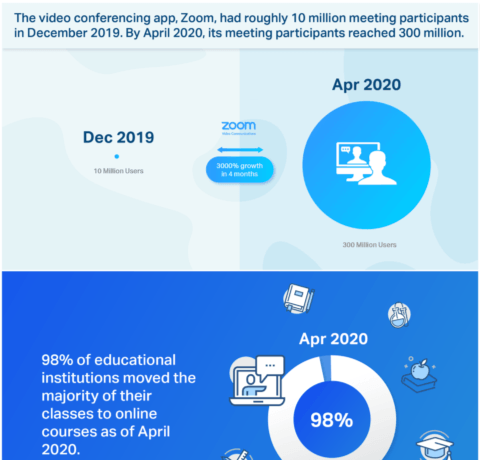6 Myths of Online Colleges Infographic
Online courses and degree programs continue to grow as an option for going to college. More than 6.7 million students are turning to distance learning as a convenient, cost-effective way to earn a degree and sharpen their skills. But some myths and questions about the quality and value of an online education persist. Will studying online really give you a good education? Could it help you get a job? The 6 Common Myths of Online Colleges Infographic compiles some information that helps you separate fact from fiction and gain a more accurate (and even eye-opening) perspective on online education.
Myth 1: Online Courses Are Not Accepted by Employers
According to a 2010 survey by the Society for Human Resource Management, 79% of employers said they hired someone with an online degree in the preceding 12 months. Employers can benefit from online programs because they gain a more skilled workforce, and their employees do not have to leave work to pursue a higher education.
Myth 2: Good Professors Don’t Want to Teach Online
Brick-and-mortar schools which also offer distance learning programs use the same curriculum and admissions standards whether a student is learning online or not. When issuing degrees or transcripts, those schools don't specify whether the courses were taken online or on campus, because they are the same courses. Schools that are accredited are expected to adhere to certain education standards. If classes or instructors are not up to par, schools risk being put on probation, or worse—losing their accreditation altogether. Moreover, institutions like Harvard and Cornell offer distance learning courses, and these are universities renowned for the quality of the education they provide.
Myth 3: Online Classes Are Easier Than In-Person Courses
As more students take online classes, the demand for improved quality has increased. And according to the Sloan Consortium, there are 77% of academic leaders who said learning results in online courses were equal to or superior to traditional courses.
Myth 4: Respected Schools Don’t Offer Online Courses
More than 64% of traditional colleges offer online programs, according to onlinelearningsurvey.com. There are also some very well-known and prestigious colleges and universities that offer distance learning courses including New York University (NYU), Boston University, George Washington University, Northwestern, UMassOnline, and University of Southern California (USC), to name a few.
Myth 5: Online Students Aren’t Smart
Many online students are adults who have already earned an undergraduate degree or credits through classroom learning and have just gone back to school via distance learning to upgrade their skill set or earn a graduate degree. According to Aslanian Research, some 47% of online students already have some college education.
Myth 6: Online Courses Are For Anti-Social People
Many online classes are held via webcams and chat rooms, enabling students to listen to course lectures by instructors and interact with other students. And according to detc.org, the more than 60% of online students choose distance learning programs to either accommodate their work schedule or for the convenience factor.







You can adjust your cookie preferences here.